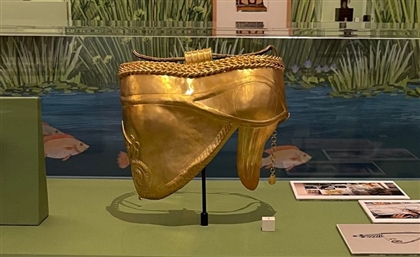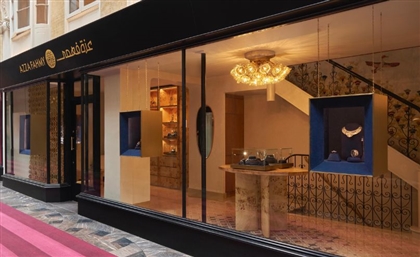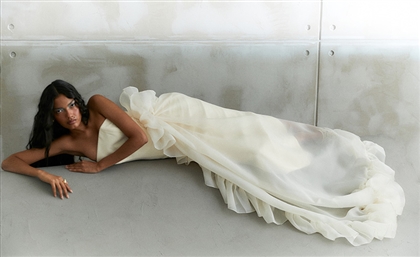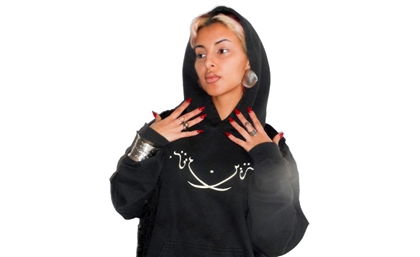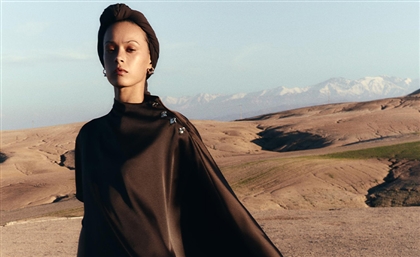The Story of the Bahraini Label Revolutionising 3D Printed Fashion
Taking flight post-covid, Touchless crafts architectural marvels in the form of special edition 3D printed handbags.
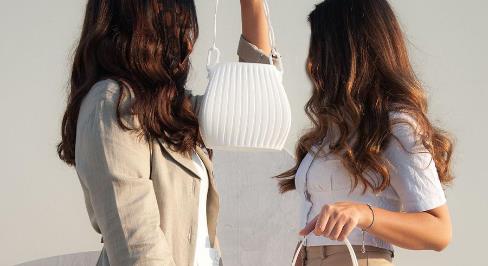
In an industry quite fast-paced and competitive, there isn’t much that hasn’t been explored nor experimented with in fashion, but there is also never a shortage of creative minds that seek to disprove the aforementioned statement. One such pair of creative minds is Bahrain-hailing sisters and founders of Touchless, Dalal and Fatema AlKhaja.
With respective degrees in architectural interior design and finance, Dalal and Fatma may have perhaps not been destined to share a career path, but with the 2020 pandemic doing what it does best - that being changing trajectories left and right - the sisters found themselves hand in hand with ‘Touchless’.
Revolutionising the future of fashion accessories within the region and beyond, Touchless utilises 3D printing technology to produce limited edition statement handbags that are quite frankly in a league of their own. With pieces at once symmetrical and whimsical, colourful yet minimalistic, and futuristically retro, Touchless takes one look at industry limitations, and 3D prints a bridge on which to bypass them.
Since introducing their innovatively printed designs, the AlKhaja sisters have steadily expanded their reach across the world, selling in London, Abu Dhabi, and of course, Bahrain. How did two young entrepreneurs with a shared passion for sustainable design mobilise in the face of a global crisis and navigate the challenges of an emerging industry?
In the words of Touchless’ co-founder Fatema AlKhaja, this is how…
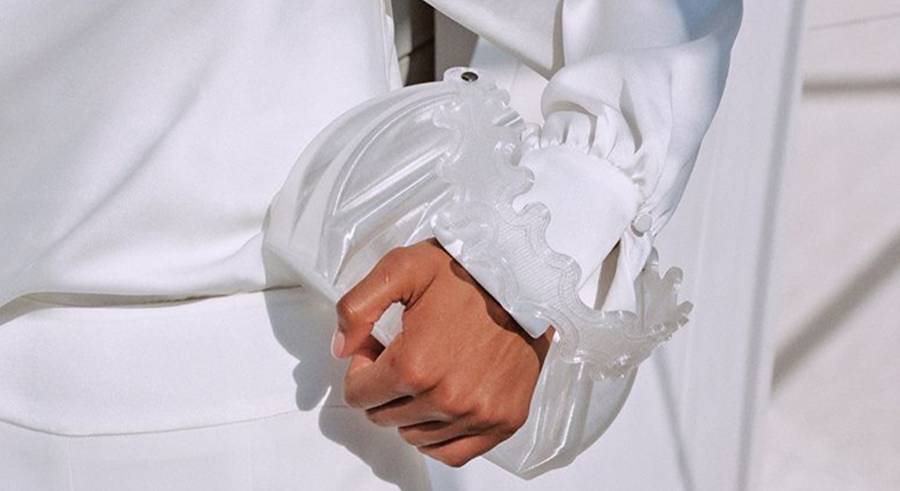 When did the idea for Touchless come to you? Was there a specific moment that drove you to start the brand?
When did the idea for Touchless come to you? Was there a specific moment that drove you to start the brand?
3D printing was introduced to us back in 2012 by our father, who is now the Lead Concept Designer and Head of Production at Touchless. It was a tool that served us well in our university projects and experimental designs at work. In March 2020, the pandemic struck, and we were all in lockdown. We brainstormed ways to support Bahrain’s COVID19 team and started with designing our own tool to push buttons, open doors, and so forth.
After launching the tool, we designed and produced face shields, mask extenders, and many more accessories that would benefit the community during these times. We were overwhelmed by the endless possibilities that 3D printing offered us. One day, while sanitising our leather bags, an idea was brought to life that changed the way we viewed our handbags. We decided to design pieces that were visually striking, lightweight, and could be easily washed by the end of the day. We developed the idea for a few months and shared it with friends and family and got incredible feedback. That was our simple beginning.
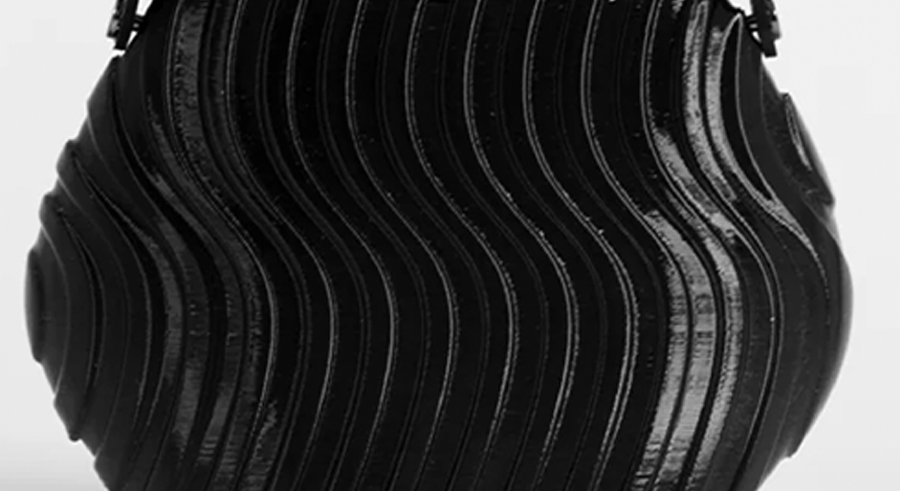 Why did you choose to name the brand Touchless?
Why did you choose to name the brand Touchless?
The name encapsulates the brand's initial focus on touch-free tools during the pandemic Surprisingly, many now associate the name Touchless with the bags themselves, recognizing that they are crafted in a touch-free manner.
 How would you describe your aesthetic?
How would you describe your aesthetic?
Our aesthetic is characterised by visually striking and lightweight designs that seamlessly blend with sustainability and innovation. Our handbags are not just accessories; they are like carrying an art piece, each one with a unique story to tell.
In essence, our aesthetic embodies a commitment to both visual appeal and practical sustainability.
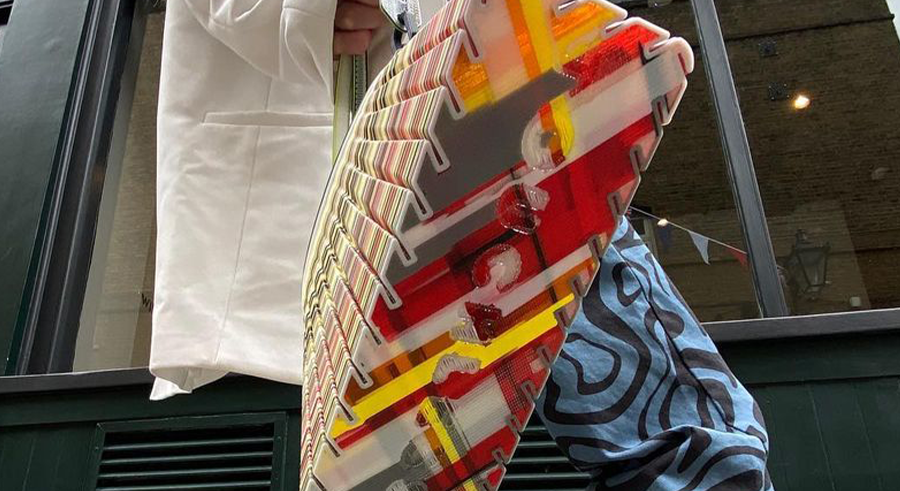 How do you come up with the silhouettes for each collection?
How do you come up with the silhouettes for each collection?
The creative process for developing silhouettes for each collection involves a multi-step approach. It all begins with gathering inspiration from diverse sources, including art, nature, architecture, and current trends. Collaborative brainstorming sessions are then held to generate a variety of concepts and ideas. These concepts are translated into rough sketches and digital renderings to visualise and refine potential designs. Prototypes are created, and an iterative process ensues with the design team, incorporating feedback and refining the prototypes.
Simultaneously, materials are explored, and functionality testing is conducted to ensure both aesthetics and practicality. User feedback plays a crucial role as a select group tests the prototypes in real-world situations, providing valuable insights. The design team refines the silhouettes based on this feedback until they are confident in the final designs. Preparations for the collection launch then follow.
 I personally absolutely love your Gem clutches, would you say you have a personal favourite collection?
I personally absolutely love your Gem clutches, would you say you have a personal favourite collection?
Dalal’s go-to is the newest edition, Selo, in the newest colour, stone, as it complements both warm and cool tones, making it the perfect everyday bag. For me, I love the Gem Clutch in Onyx, it’s just the ideal little black accessory for gatherings and dining out.
 Could you walk me through your fall collection? How are you able to achieve these gorgeous gradient colours through 3D printing? They’re genuinely beautiful!
Could you walk me through your fall collection? How are you able to achieve these gorgeous gradient colours through 3D printing? They’re genuinely beautiful!
For the 2023 fall/winter collection, a timeless cool beige, Stone, was introduced. It is also the first Touchless bag that is paired with steel hardware.The collection includes marbled pieces, with each handbag composed of over three hundred seamlessly connected TPU strips, creating a mosaic-like aesthetic.
 What kind of challenges were you faced with? Did you face any sceptics initially?
What kind of challenges were you faced with? Did you face any sceptics initially?
Expanding our footprint has been a continuous effort, and part of this growth involves strengthening our production team. However, the unique nature of our manufacturing process, relying on 3D printing, comes with its set of challenges. Sourcing the ideal materials consistently has proven to be quite complex, given that 3D printing in fashion is still a new concept.
The newness of this manufacturing method means that we are continually learning and adapting. While facing occasional difficulties with the machinery is a given, our commitment to innovation propels us forward. The road has not been without sceptics, especially in the initial stages when the concept of 3D printed fashion was met with curiosity and some scepticism. However, with persistence and a focus on continuous improvement, we have been able to navigate these challenges and carve our niche in the ever-evolving landscape of fashion.
As we expand, we recognize that learning and growing are integral parts of our journey, and we remain committed to overcoming obstacles to bring cutting-edge, 3D-printed designs to our audience.
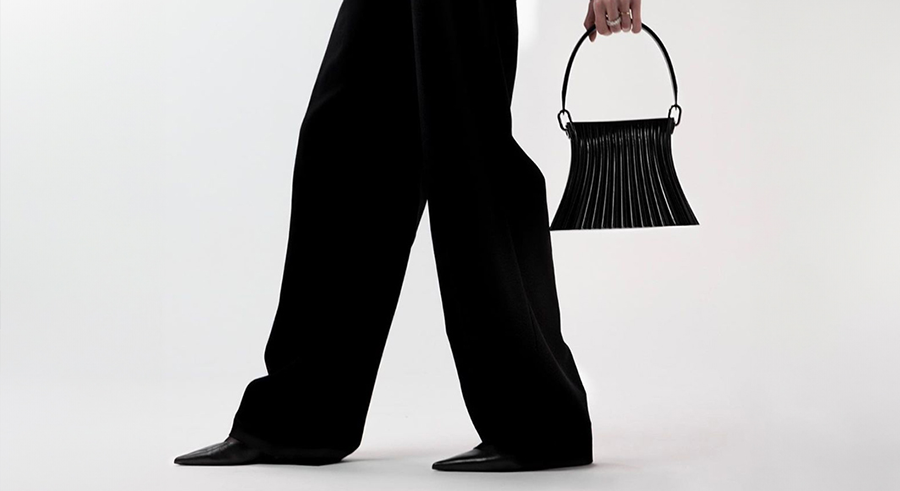 How’s it like working together as sisters?
How’s it like working together as sisters?
Working together as sisters not only brings a unique synergy to our collaboration but also deepens our connection to the brand. We share a genuine passion for what we do, and this shared enthusiasm fuels our creative process. Each of us brings our own distinct strengths and background knowledge to the business.
Working within a family-owned brand certainly presents its unique set of challenges. The comfort level among family members means that there's no sugar-coating when it comes to differing opinions. However, this candidness also proves to be a significant advantage. The straightforward communication style allows us to make decisions with full honesty and transparency.
 Any areas in which you’re planning on expanding into?
Any areas in which you’re planning on expanding into?
3D printing offers us endless design possibilities, we are definitely thinking of expanding our line of accessories. In 2024, Touchless has plans for pop-ups, new department stores, and a hopeful expansion into more international markets. While details can't be revealed yet, the upcoming year promises exciting opportunities for the brand.
- Previous Article 12 Saudi Women to Follow for Style Inspo
- Next Article Monochrome Monday: The Electric Blue Edition
Trending This Month
-
Feb 08, 2026
-
Feb 21, 2026


